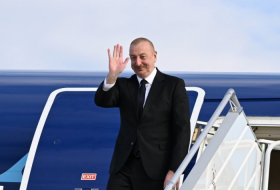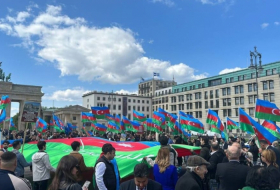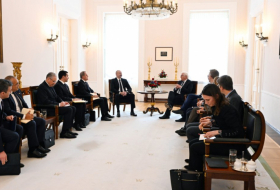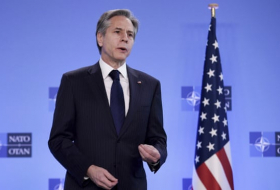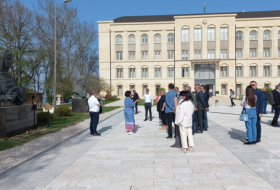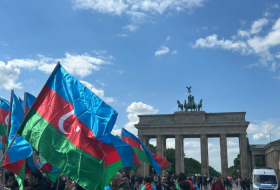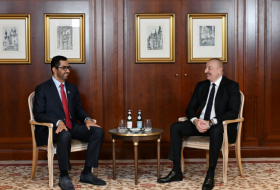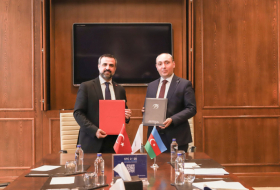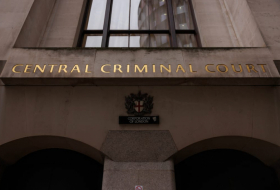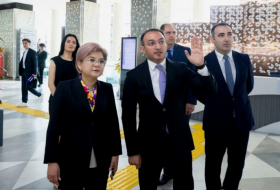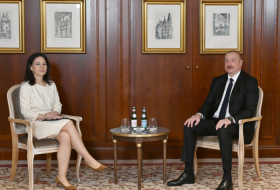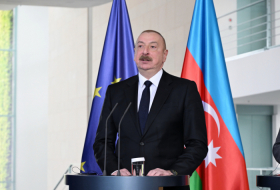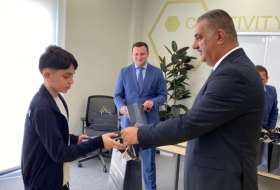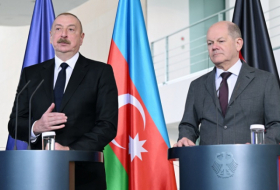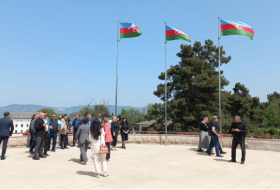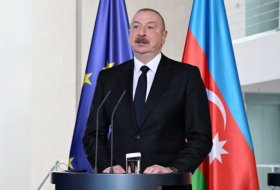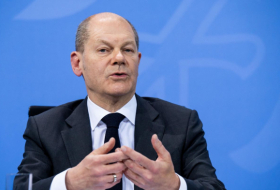Trump and Putin connect, but avoid talk of lifting U.S. sanctions

The two leaders discussed fighting terrorism and expanding economic ties, but barely mentioned the wedge that has been driven between Washington and Moscow since Russia annexed Crimea and sponsored a separatist war in eastern Ukraine in 2014. Still, although Mr. Trump had previously expressed a willingness to lift sanctions against Russia, the issue did not come up, according to officials on both sides.
The tone of the conversation was reported to be warm, indicating a drastic shift after relations had broken down between Mr. Putin and former President Barack Obama. “The positive call was a significant start to improving the relationship between the United States and Russia that is in need of repair,” the Trump administration said in a statement. “Both President Trump and President Putin are hopeful that after today’s call, the two sides can move quickly to tackle terrorism and other important issues of mutual concern.”
In its statement, the Kremlin said: “Donald Trump asked to convey a desire for happiness and prosperity for the Russian people, noting that the people in America relate with sympathy to Russia and its citizens.” Mr. Putin answered that Russians feel the same way about Americans, the statement said. Neither side mentioned the Russian hacking of the American election in their statements.
Over the past two days, Mr. Trump has also had a series of conversations with the United States’ traditional European allies, but those calls were seemingly not as congenial. After a meeting on Friday with Prime Minister Theresa May of Britain, in which she warned against removing sanctions on Russia, Mr. Trump had on Saturday what appeared to be a businesslike call with Chancellor Angela Merkel of Germany, and a testier call with President François Hollande of France.
Mr. Hollande’s office said the French president pressed Mr. Trump not to lift sanctions against Russia and to respect the nuclear agreement with Iran. He asserted the importance of the Paris climate change pact, warned of the consequences of protectionism, and added that democratic values included welcoming refugees — all in reaction to Mr. Trump’s first week of policy moves. Mr. Hollande also emphasized the importance of NATO and the United Nations, both of which Mr. Trump has disparaged.
The call came just hours after Mr. Hollande, at a conference in Lisbon, said that European countries had to stand together against Mr. Trump, and assert their common values.
“We have to be conscious of the responsibility we have,” he told reporters, according to Agence France-Presse. “Europe is a force, Europe is a guarantee, Europe is protection, and Europe is also a space for liberty and democracy.”
Ms. Merkel, who has reacted coolly to Mr. Trump’s rise, emphasized the importance of NATO in their own 45-minute call with the president on Saturday. The two sides later released similar statements affirming the American commitment to the alliance, even as they noted that allies needed to increase their contributions, as Mr. Trump has demanded.
But the tone was spare and lacked warmth. That the statements included a description of what has been a cornerstone of policy for decades illustrated just how rattled trans-Atlantic relations have been since Mr. Trump dismissed NATO as “obsolete” shortly before his inauguration.
Mr. Trump’s conversation with Mr. Putin was their first direct discussion since the inauguration a week ago and aimed at setting the groundwork for a possible meeting.
American intelligence agencies have concluded that Russia made a concerted effort — through hacking, propaganda and other means — to influence the November election in favor of Mr. Trump, a conclusion Mr. Trump initially refused to accept until he received a detailed briefing. Intelligence officials also briefed both Mr. Obama and his successor on a mysterious dossier compiled by political foes of Mr. Trump that included unsubstantiated claims that Russia had collected compromising information on the future president.
The Federal Bureau of Investigation reviewed an intercepted postelection conversation between Michael T. Flynn, now the national security adviser to Mr. Trump, and Sergei I. Kislyak, the Russian ambassador. American authorities are also examining possible links between Russian officials and associates of Mr. Trump, including his former campaign chairman, Paul Manafort.
Mr. Trump’s phone call with Mr. Putin came after news reports in Moscow that two Russian intelligence officers who had worked on cyberoperations, as well as a Russian computer security expert, had been arrested on treason charges. One of the Federal Security Service officers detained has been accused of providing information to the United States, according to Novaya Gazeta, a Russian opposition newspaper.
The United States and Europe have imposed an array of sanctions on Russia for its intervention in Ukraine and for human rights abuses at home. Before leaving office, Mr. Obama imposed additional sanctions and expelled 35 Russian diplomats in retaliation for that country’s interference in American elections. Lifting them, critics said, would cause a rift between the United States and Europe.
“That’s going to lead to disunity and exactly what Putin wants,” said Michael McFaul, who served as ambassador to Russia under Mr. Obama. “What could be better for him? Not only the act of sanctions’ being lifted but the process of disunity and disarray within the European Union. That’s a giant gift to him.”
Senate Republicans may have slowed Mr. Trump on sanctions after Senator Mitch McConnell of Kentucky, the majority leader, said he would favor bipartisan legislation requiring that sanctions stay in place. Mr. Trump tried to play down the prospect at a news conference with Mrs. May on Friday, saying it was “very early to be talking about” sanctions relief. But he did not disavow it, and government officials said there had been discussion of what to do on sanctions since Mr. Trump’s team took over.
Joining Mr. Trump in the Oval Office for his phone call with Mr. Putin was Vice President Mike Pence; Reince Priebus, the White House chief of staff; Stephen K. Bannon, the president’s chief strategist; Sean Spicer, the White House press secretary; and Mr. Flynn.
The Kremlin said the two leaders talked about the Middle East, including the Syrian civil war; the Islamic State; the Israeli-Palestinian conflict; and Iran’s nuclear program, although it gave no specifics. North Korea and strategic nuclear arms came up, as did “key aspects of the Ukraine crisis,” the statement said.
“It was agreed to cooperate on these and other issues,” the Russian statement said, “but the priority was placed on uniting forces in the fight against the main threat — international terrorism.”
But an American official, who was briefed on the call but not authorized to discuss it publicly, said Ukraine did not come up in any real detail, and sanctions did not come up at all.
Still, a leading member of Russia’s Parliament, Dmitri Novikov, said that mention of bolstering trade ties suggested that sanctions relief was coming. “To fully develop economic ties, it’s necessary to create the right climate and legal conditions, and that requires canceling sanctions,” he told the Interfax news agency.
Others seemed to be expecting the same. Soon after the call, a Russian government investment fund, the Russian Direct Investment Fund, announced it had arranged more than 10 projects it hoped could draw American investment to Russia, and that it planned to open an office in New York in May.
Mr. Trump also spoke on Saturday with Prime Minister Malcolm Turnbull of Australia and Prime Minister Shinzo Abe of Japan. He invited Mr. Abe to visit the White House on Feb. 10. “President Trump affirmed the ironclad U.S. commitment to ensuring the security of Japan,” the administration said in a statement, a commitment that had been in doubt among some in Tokyo after some of Mr. Trump’s statements during the campaign.
/NYTimes/








